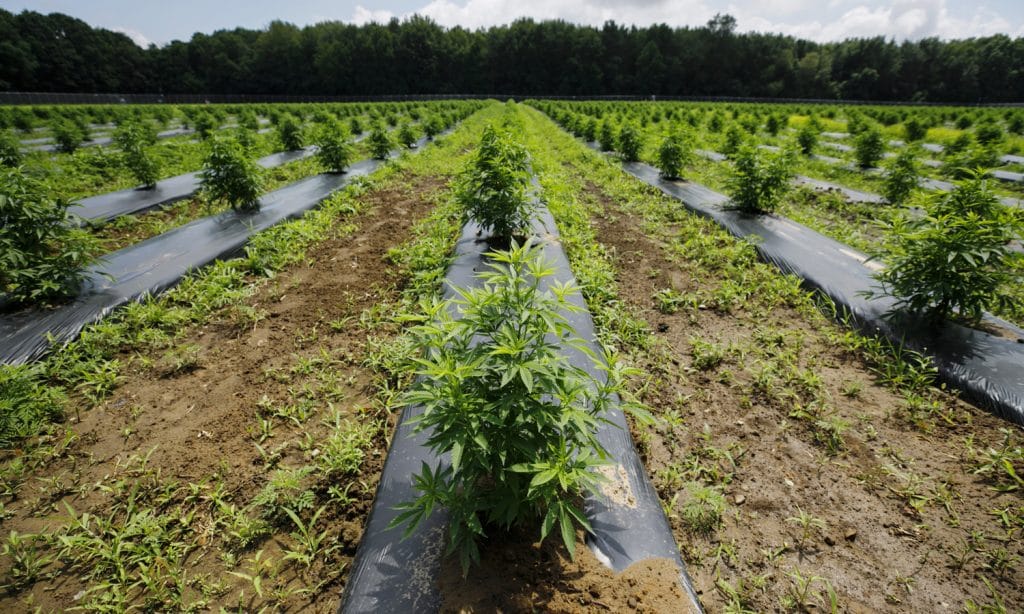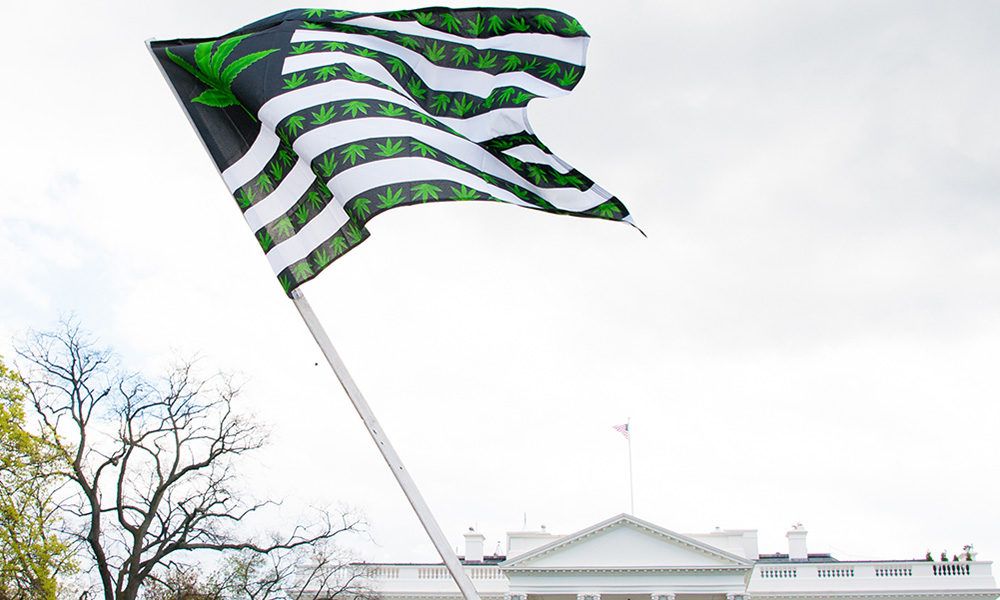Since this article is about Virginia and Maryland I put it here....
Lawmakers in Virginia have passed two bills that prohibit law enforcement officers from conducting warrantless searches based solely on the odor of marijuana. The measures, Senate Bill 5029 and House Bill 5058, have been approved by both legislative bodies and await the signature of Democratic. Gov. Ralph Northam to become law.
Earlier this year, Virginia decriminalized possession of small amounts of marijuana by limiting penalties to a civil fine of $25. Jenn Michelle Pedini, the development director of the National Organization for the Reform of Marijuana Laws (NORML) and the executive director of the group’s Virginia branch, said in a release on Monday that the two bills continue the state’s reform efforts, but more still needs to be done.
“While this will certainly decrease non-essential interactions between law enforcement and otherwise law-abiding Virginians, it is only by legalizing the responsible use of cannabis by adults that the Commonwealth can end its failed experiment with prohibition and begin repairing the decades of damage,” Pedini said.
According to the text of the bills, “no law-enforcement officer may lawfully search or seize any person, place, or thing solely on the basis of the odor of marijuana and no evidence discovered or obtained as a result of such unlawful search or seizure shall be admissible in any trial, hearing, or other proceeding.” Other provisions of the legislation limit the power of police to issue summonses for minor traffic offenses.
Advocates for the bills argue that police have long used the smell of cannabis, real or otherwise, as pretense for conducting warrantless searches. Attorney Todd Zinicola said that the courts are insulated from the extent of the abuse of power.
“The problem is judges only see the cases where someone got charged with possession of marijuana or some other offense,” Zinicola said. “But a countless number of times, people get searched, are kept on the side of the road for hours, and police find nothing and they leave. It’s traumatizing.”
“Earlier this year, Maryland’s highest court unanimously decided that law enforcement may not rely on the odor of marijuana as justification to perform a warrantless search of a person or to make an arrest,” said NORML’s Pedinini last month. “It’s time that Virginia does the same.”
“While there is much more work to be done surrounding criminal justice and cannabis policy, these bills are important steps the Commonwealth can and should immediately take,” she added. “Prohibiting law enforcement searches based solely on the odor of marijuana will greatly reduce non-essential interactions between police and otherwise law-abiding members of the public.”
Senate Bill 5029 was passed in August by a vote of 21 to 15 in the Senate. Chelsea Higgs Wise, the executive director of pro-legalization nonprofit Marijuana Justice, said at the time that the bill would help address the racial inequities prevalent in the enforcement of drug laws.
“This is a small but important step to decriminalizing Black and brown bodies of being targeted by this longtime policing tool, which was really created by politicizing the war on drugs,” Higgs Wise said.
Virginia Lawmakers Pass Bills To Ban Searches Based On Marijuana Odor
The governor will decide the fate of the bills.Lawmakers in Virginia have passed two bills that prohibit law enforcement officers from conducting warrantless searches based solely on the odor of marijuana. The measures, Senate Bill 5029 and House Bill 5058, have been approved by both legislative bodies and await the signature of Democratic. Gov. Ralph Northam to become law.
Earlier this year, Virginia decriminalized possession of small amounts of marijuana by limiting penalties to a civil fine of $25. Jenn Michelle Pedini, the development director of the National Organization for the Reform of Marijuana Laws (NORML) and the executive director of the group’s Virginia branch, said in a release on Monday that the two bills continue the state’s reform efforts, but more still needs to be done.
“While this will certainly decrease non-essential interactions between law enforcement and otherwise law-abiding Virginians, it is only by legalizing the responsible use of cannabis by adults that the Commonwealth can end its failed experiment with prohibition and begin repairing the decades of damage,” Pedini said.
According to the text of the bills, “no law-enforcement officer may lawfully search or seize any person, place, or thing solely on the basis of the odor of marijuana and no evidence discovered or obtained as a result of such unlawful search or seizure shall be admissible in any trial, hearing, or other proceeding.” Other provisions of the legislation limit the power of police to issue summonses for minor traffic offenses.
Advocates for the bills argue that police have long used the smell of cannabis, real or otherwise, as pretense for conducting warrantless searches. Attorney Todd Zinicola said that the courts are insulated from the extent of the abuse of power.
“The problem is judges only see the cases where someone got charged with possession of marijuana or some other offense,” Zinicola said. “But a countless number of times, people get searched, are kept on the side of the road for hours, and police find nothing and they leave. It’s traumatizing.”
Searches Based On Smell Of Pot Also Banned In Maryland
In 2019, an appeals court in neighboring Maryland ruled that the odor of marijuana does not constitute probable cause for a search. That ruling was upheld this year on a subsequent appeal.“Earlier this year, Maryland’s highest court unanimously decided that law enforcement may not rely on the odor of marijuana as justification to perform a warrantless search of a person or to make an arrest,” said NORML’s Pedinini last month. “It’s time that Virginia does the same.”
“While there is much more work to be done surrounding criminal justice and cannabis policy, these bills are important steps the Commonwealth can and should immediately take,” she added. “Prohibiting law enforcement searches based solely on the odor of marijuana will greatly reduce non-essential interactions between police and otherwise law-abiding members of the public.”
Senate Bill 5029 was passed in August by a vote of 21 to 15 in the Senate. Chelsea Higgs Wise, the executive director of pro-legalization nonprofit Marijuana Justice, said at the time that the bill would help address the racial inequities prevalent in the enforcement of drug laws.
“This is a small but important step to decriminalizing Black and brown bodies of being targeted by this longtime policing tool, which was really created by politicizing the war on drugs,” Higgs Wise said.

